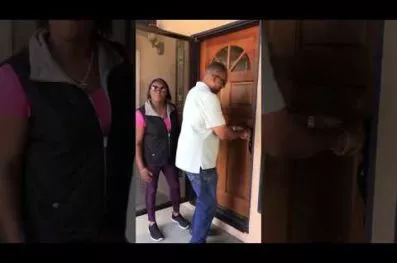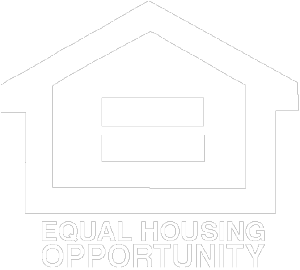Rent vs. Buy

Va Loans
REAL ESTATE FOR VETERANS
Renting vs. Buying
Renting vs buying a home using your VA Home Loan Benefit

Peter Van Brady
Founder of SoCal VA Homes
Author: Avoiding Mistakes & Crushing Your Deals Using Your VA Loan
Once you are aware that you can buy a home without a down payment using your VA Home Loan Benefit, you will have to consider whether or not you are emotionally and financially ready for homeownership. The truth is there are advantages and disadvantages in both cases in renting or buying a house, and there are solid arguments for each.
So, just for compare and contrast purposes, let’s look at both the upside and even the downside of homeownership. What are the pros? What are the cons?
Questions to ask yourself:
-
Am I ready for this major investment?
-
Is purchasing a home the best use of money in my/our situation at this particular time?
-
Do I need a house, or is a rental a wise choice in my/our situation at this particular time?
-
Do I like the town or city and state where I am considering this purchase well enough to live there for years or decades?
-
Am I financially biting off more than I can chew?
-
Will my income grow, decrease, or be eliminated? What is my job security?
-
What are my options?
-
What are my goals, plans, financial health, interests?
-
Do I want the responsibility of maintaining a piece of property?
-
Do I envision myself spending my free time doing upkeep, or would I rather not have my weekends booked with chores?
-
Is the house big enough?
-
Is the house too big?
-
Will it be enough if we start a family?
-
Do we want children? Is this the right place to raise them?
-
How are the local schools?
Advantages of The
Homeownership Experience
The homeownership experience includes a host of awesome benefits including but not limited to:
-
Pride of ownership, security, and increased privacy.
-
Ability to landscape or decorate as you wish.
-
A stable environment for your marriage and children. Owning a home is still a good investment, despite the housing bubble burst.
-
Studies have shown that owning a house has numerous benefits, including a sense of well-being.
-
Ownership also is a foundation for wealth creation, a vehicle to create equity, often your largest investment and asset in a portfolio.
-
A house creates stability for you and your family, and stability, in turn, is known to be a factor in children doing better in school and having quality friendships as part of a community.
-
You can own a dog (or other treasured pet). Try securing a rental as a pet owner--that’s a real challenge!
-
Houses usually increase in their value over time, making them not only a good residence, but good investments.
-
Your mortgage payment, especially if on a 30 year fixed-rate, is a stable amount, unlike your rent costs which can vary year-to-year due to inflation, the supply and demand of rental property, or the whims of a landlord.
Tax incentives include:
-
Tax breaks on the profit (when selling and repurchasing).
-
Mortgage interest tax deduction.
-
County real estate tax deduction.
-
Credit on energy-efficient home improvements.
-
Savings/investments in the form of equity buildup.
-
Huge tax credits on solar energy.
Disadvantages of Homeownership
Disadvantages are relative—Do you remember the saying “One person’s trash is another person’s treasure?” What you may consider a disadvantage may be what someone else considers an advantage. You might have dreams of travel, or of someday living in a different state, so “long term commitment” to a property might be a problem for you whereas another person may wish with all their heart to put down roots in a community for a lifetime or for generations.
One person’s disadvantage is another person’s advantage—there’s no need to belabor the point. Other disadvantages include:
-
Long term commitment to property and town/city/state (ability to move or travel limited).
-
No longer can call landlord when things go wrong.
-
House and property maintenance is now up to you. Do you have the money and skills needed for repair and upkeep?
-
Given many historical reference points in many areas across the country, there’s an argument that says it can often be more expensive to own initially, but that’s definitely not always the case. In certain areas at certain times, either renting or buying can be a better deal. While there are numerous Rent v. Buy calculators Out There across the web, you could simply seek insight by calling us, So Cal VA Homes, at (949) 268-7742 or via email at Contact@socalvahomes.org.
-
There’s the possibility of foreclosure if you fail to keep current with your monthly mortgage. Simply, the bank (or lender) can take away your home. We hope you never face this situation. The loss of your home, of your investment, could then also result in other loses including your credit rating...not to mention the stress and strain on your life and relationships.
Advantages to Renting a House
-
There are less responsibilities when you rent.
-
If your toilet overflows or your heater breaks down in the dead of winter, you don’t have to fix it yourself or pay for home maintenance costs out of your own pocket.
-
If utilities are covered in your rent, you save additional money.
-
Landlord takes care of repairs and maintenance.
-
You are more flexible with a short-term commitment when you rent, enabling you to move if you need or want to.
Disadvantages to Renting a House
-
There are no tax breaks when you rent.
-
There is no way to build equity when you rent.
-
Housing costs are not fixed, and most rents rise annually, with inflation.
-
Because of the nature of renting (large turnover, the owner’s need to get into the property for repairs and upgrades, the potential that the house’s owner may sell or die,) you might be told you have to move even when you don’t want to.
It might seem that renting and homeownership are not that different when you consider a case by case basis such as the one above. However, the majority of the time homeownership is the smartest decision you can make, especially if you have the advantage of the VA Home Loan Benefit. Your own educated, common sense will ultimately be the most important influence on your decision to “own or rent.” What is your goal, your dream? Do you want the freedom that rentals allow you? Or do you want the benefits that only homeownership can bring? There may be a time when renting works better for you, but it is most likely a time where you are struggling, indecisive, between life milestones, or not living in the region you most prefer. Again, owning a home is the best investment you can make if you can afford it. Learn how to afford it.
Americans like homeownership. Prior to the financial crisis in 2008, a record high 69.2% of Americans owned homes. When the housing bubble burst and the most severe crisis since the Great Depression upended the economy, seven million Americans lost their homes. In 2014 in America, homeownership is at 65.4%, a large figure indeed. If two-thirds of the country own homes, even in hard times, it suggests that it is a strong national value.
Statistics are often hard to interpret. For example, reading that 75% of Americans are well-fed doesn’t help when you realize that 25% are hungry. But in America, again, 65.4% of our population own homes. That’s a big number. America is such a diverse nation now that it is amazing that anything ranks that high. To put that statistic in perspective—just for fun—let’s compare 65.4% to other percentages of basic American behaviors, possessions, and/or values.
Percentage Of Americans Who Are:
-
Left-handed - 10%
-
Overweight - 35.5%
-
Married - 51%
-
Democrat - 31%
-
Republican - 29%
-
Independent - 38%
-
Blue-eyed - 33.8%
-
Gay - 2%
-
Illiterate - 14%
-
Prefer Pepsi over Coke - 23%
-
Unable to swim - 36%
So…65.4% is a big number! 65.4% of Americans who value homeownership enough to be a homeowner against all odds says something powerful – a real testimony about its importance and worth – the institution of homeownership!
Yet nothing is simple, especially in the aftermath of the financial crisis. You most likely believe, bone-deep, that renting is cheaper than buying, and that it is a natural procession to move from renting to buying. Most of us have forever internalized the American Dream of owning a house and a piece of land. The equation for that dream didn’t use to be so complex.
But things have changed.
If you were one of the seven million Americans who lost your home, what would you do? Besides perhaps being embroiled in perpetual frustration, you would most likely go find a place to RENT.
Rent
The equation of rent vs. buy has changed because so many of your fellow Americans who were tossed out of their homes in the Great Recession are now renting! Just try to find a rental in 2014! The law of supply and demand is assuredly at work, and the homes usually available to people who tend to rent have been snapped up by former homeowners. The decline in ownership that resulted in a large increase in rentals has also driven up the price of those rentals. Rents are up 20% over the last four years.
By 2014, as stated before, due to supply and demand, renting is far more expensive than it used to be. In fancy Wall Street jargon, “Homeownership is more expensive because it is a factor of down payment.” If that down payment is such an enormous factor, certainly one can see the advantage of the VA Home Loan Benefit. The VA buyer can purchase a house for zero down! Remove that down payment roadblock, and the odds return in your favor.
Sometimes people will compare and contrast the numbers and shake their heads at the results which suggests that owning a home is more costly than renting. Be careful to make sure you are not comparing apples with oranges. Sure a house can be more expensive…you are most often buying more space! No wonder the numbers run higher. The typical transition from being a renter to being a homeowner usually includes a jump or an increase in square footage. While it is not always the case, people tend to go from smaller rents to larger living spaces when they buy.
Now added to the growing list of advantages of buying a house, even in tough times, are the tax advantages. The real tax break is on the profit you make! If you sell a home and make money on it…as long as you buy a new home at the same price or greater then you don’t have to pay capital gains tax on that home. When you reinvest you don’t pay any taxes on it. (Other tax advantages may include the deductions of mortgage interest and property taxes. (Disclaimer: We’re not giving tax advice; please consult a tax professional for current tax code.)
As we have discussed both sides of the rent vs. buy equation, with rare exceptions, we suggest you buy when you can afford to do so. With zero down, you can’t really afford not to.
You may get to the point where it seems there are only obstacles in your way to owning a home. At SoCal VA Homes, we offer solutions to your frustrations and these roadblocks.
Should you rent or buy? We can help you buy.
Will your VA Home Loan Benefit really help? Yes.
As we said previously, our mortgage company, One Touching Lending, has been working with active military and Veterans since 9/11. A breakthrough occurred in 2011 as One Touch Lending was doing large volumes of refinances for VA homeowners. Our market of VA home buyers was silent for years due to higher home prices and the lack of higher VA loan limits – they were effectively locked out. As home prices declined from the peak in 2006 and VA loan limits were raised, our market woke up! In 2008, VA home buyers began coming out from hiding! And in 2011, several thousand had now bought homes across California. Interest rates dropped like a rock in 2011 and created a refinance boom. This “boom” of VA refinance loan volume provided new insights into the market for me.
The sheer number of conversations that I had with hundreds of VA refinance clients over those many months was the catalyst to creating SoCal VA Homes. The conversations clearly demonstrated the problems that I later set out to solve! During that time, I had that “aha moment!” I came up with an idea that is revolutionary in the VA market. What if I were to purchase homes, renovate them to the specific needs of the veteran, and sell them to our clients for zero down, zero closing? An idea in a vacuum is just a concept, so we surveyed our own clients and prospective clients to gauge their reaction. Their response was more than positive. It was ecstatic! Here was a solution to a vexing problem.
While getting into a home for reduced prices (especially in a recession) was surprisingly good news, we saw something we believe to be wrong: the VA Home Loan Benefit was actually a liability. As the market moved dramatically from a buyer’s market in 2008 to a seller’s market in 2014, it became very difficult for VA buyers to compete with cash buyers because the housing inventory was so low. Reality can be harsh, and the reality here is that the market favors cash buyers and conventional buyers who can make huge down payments and large good faith deposits into escrow, securing their commitment to buy homes. By contrast, VA buyers are considered less desirable.
Typically, when someone uses their VA Home Loan Benefit in order to purchase a house with no money down, the marketplace tends not to be readily accepting of VA buyers. (Remember the VA Guaranty is not a guarantee that you will be able to buy a house, but rather that the U.S. Government promises to “insure” the lender against loss on a percentage of the loan should the buyer default). That fact that sellers don’t favor VA buyers is an injustice (especially since the VA Guaranty was created as an honor and a leg-up for Veterans).
It was at this point that SARTRE, our real estate investment company, joined forces with One Touch Lending and created the concept of SoCal VA Homes and created the revolutionary DreamWeaver Home Purchase Process™. If the best homes were being purchased with cash offers, why not buy homes for cash then customize them (“add value”) and sell them to VA clients for a small profit? Our revolutionary concept helps a client base we care about and support - active military and Veterans.
The Great Recession caused millions to lose their houses, forcing those who were previously homeowners to move into the rental market creating a “renter nation” (despite the aforementioned 65.4% of Americans who still own homes). That renter nation counter-trend is being challenged by those who wish to and who can buy a home once again. In my opinion, you are still better off buying a home. Some analysis concludes that buying a home is statistically 44.1% cheaper over time. It’s a complex equation that compares factors like rising rental payments (that disappear into your landlord’s pocket) vs. homeownership costs and financial benefits over time.
For assistance in making the decision to rent or buy, call us at 949-268-7742.
As Seen on ABC 10 5:00 O’Clock News








